Dan Owen reviews
I s s u e # 9 53 0 J u n e 2 0 0 4
Kelly Carlson (TV’s Nip/Tuck, right) was on a radio show in Omaha, Nebraska, andmentioned she was auditioning for a role in Quentin Tarantino’s new movie -which she wasn’t allowed to mention the name of.
28 DAYS LATER 2’Variety’ reports that ‘Fox Searchlight’ are developing a sequel to Britishhorror hit 28 Days Later, directed by Danny Boyle (Trainspotting). Theoriginal became a surprise hit in the States last year, grossing $45million.
The tentative title is 28 Weeks Later and the studio is in talks with RowanJoffe (of BBC’s Last Resort) to write the script. Boyle is not expected todirect the sequel, but he and original screenwriter Alex Garland are likelyto produce alongside his long-time collaborator Andrew Macdonald.
FIGHT CLUB – THE MUSICALFight Club author Chuck Palahniuk was at the First Unitarian Church inPortland, Oregan, recently and during a Q and A session he revealed thereare plans to adapt his novel for the stage!
David Fincher, who directed Palahniuk’s cult novel for the 1999 moviestarring Brad Pitt and Edward Norton, apparently commented: “Can you imaginepeople in New Jersey paying $120 to drive to the city and watch a musicalabout anarchy?”
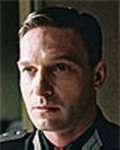
KING KONGActor Thomas Kretschmann is in talks to join the cast of Peter Jackson’sKing Kong remake, says ‘The Hollywood Reporter’. Kretschmann (The Pianist)is being considered for the role of the boat captain who transports Kong toAmerica.
Kretschmann can be seen soon in Resident Evil Apocalypse and has just beencast in Dean Koontz’s Frankenstein for ‘USA Network’.
ELEKTRA’Superhero Hype!’ learned that Jason Isaacs (Peter Pan) has a cameo role in’20th Century Fox’ movie Elektra, starring Jennifer Garner and directed byRob Bowman (The X-Files). Isaacs will play McCabe, an agent who works withElektra. McCabe was previously believed to be played by Colin Cunningham.
In the movie, assassin-for-hire Elektra Natchios (Garner) is revived by theOrder of the Hand, a group of assassins who helped train her. Assigned bythe Hand’s current leader, Kirigi (Will Yun Lee), to kill a man, Mark Miller(Goran Visnjic), and his 13-year-old daughter, Abby (Kirsten Prout), Elektrasoon befriends them and decides to stand up to her ninja peers.
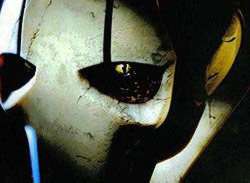
STAR WARS EPISODE III’TheForce.net’ has revealed the first live-action picture of the new StarWars villain General Grievous, who may be voiced by Gary Oldman. (see right) PLEDGE THISParis Hilton will star in the independent feature National Lampoon’s PledgeThis! for producer Juan Carlos Zapata of Street Alien Pictures, saysVariety.
Hilton will play the president of an elitist sorority at South Beach U. whopresides over a group of unlikely freshman girls who are trying to gainentrance and acceptance into the sorority.
The film will start production in Miami this August. Music video directorWilliam Heins will make his feature directorial debut on the film, writtenby Jason Jordan and Matthew Lawton (The Jamie Kennedy Experiment).
Hilton recently wrapped the Joel Silver-produced Warner Bros. horror remakeHouse of Wax and can currently be seen starring in Fox’s The Simple Life 2:Road Trip.
VOYAGE TO THE BOTTOM OF THE SEAFox 2000 is remaking the Irwin Allen-created Voyage to the Bottom of theSea. Justin Haythe (The Clearing) has been set to write the script.
In the story, the world’s most advanced submarine is sent on a deep-seasalvage hunt, inadvertently bringing aboard a predatory organism from theocean floor.
Walter Pidgeon starred in the 1961 original. “Voyage” was also a ’60s ABC TVseries starring Richard Basehart and David Hedison.
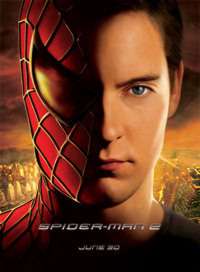
INTERVIEW – SAM RAIMI
Director Sam Raimi returns this summer with the sequel to his massive 2002success Spider-Man, and was recently interviewed.
Sam Raimi: “I didn’t know that I’d be directing it. But it didn’t reallychange anything for me. As far as knowing that there were three parts tothis story because one, the Spider-Man comic books have always been inparts.”
“But two, the movie itself seemed complete to me. In my mind, I was workingon the story and I knew how I wanted it to end. The story of a life out ofbalance, first lopsided in one way as he tries to be this responsible youngman and then lopsided in another way as he decides the hell with it, I’mliving my life, damn anybody else.”
“And then that road leads to such moral decay that he finally has to say tohimself I will go back to my lopsided life of being Spider-Man and just downthis road of responsibility. Unfortunately it’s like a prison sentence tohim. What he doesn’t know is that by the end of the piece, he learns,through Mary Jane Watson that he cannot go down that road alone.”
“And so I found that he found a sense of balance by the end. So it seemed tome, complete, as a complete story. Also the story of some young man, who ison the road to responsibility, learns the sacrifices that are necessary tobe responsible. I felt that he had learned a lesson, so it seemed completein a few different ways. I didn’t really think of it as a franchise movie.”
“As the first movie ended, I thought I really know this character PeterParker. I really understand him. Some things I don’t know, I’m stillfiguring them out, but I really know who he is. And I have this greatcuriosity as to what will happen to him in his life. Will he get back withMary Jane Watson? What about his friend Harry? How will they resolve thisdark secret of Harry’s father’s death that Peter hasn’t told him.”
“And then I realized that I have to direct this movie because I’m so curiousabout it. I need to see it. I’d love to tell that story. I wanna discoverit. I wanna discover what happens, and the writing of it, and the directingof it. And I didn’t know if that would happen at the end of this film. Butat this time, I find myself again, incredibly curious.”
“I realize that Peter Parker, there’s so much more to learn than I thought.I may never know who he is, no more than you never know who your own husbandor wife is. But the more time you spend with him, the more you love them,the more complexities are revealed to you. Often times when I’m directing apicture, I’m trying to figure out who the character is so I can direct themovie.”
“It usually happens – at some moment, I realize who it is and I know what todo. So I just feel like I’m at a great advantage in that I know who he is. Iknow how to direct him then. Now I just have to really work on the story andeverything else. A big problem has been figured out for me.”
“I just tried to get even more in touch with the things that I loved aboutStan Lee’s great character Spider-Man, and a lot of writers throughout the40 years at Marvel have contributed to Spider-Man.
“All the things that I loved about all of their stories, I tried to reallyget deeper into and connect on a deeper level with the actors, and make itmore about the characters and their interaction with one another. I tried toget to the core of what I loved even more.”
“I was thinking about a great issue of Stan Lee’s Spider-Man comic bookwhere he gets the flu. And he, for a time, is really weak. It was so humanto me, I thought it was great. This superhero’s got the bug that affects allof us, and just like we all have to go to work when we’re sick and we reallydon’t know why we’re doing this and how we’re gonna do our job, he had tofight criminals when he had the flu.”
“I thought that was incredibly human, a humanizing thing to have happened toa super hero. It was a combination of that and a desire to put that into thepicture so we could identify with him. I thought that was a unique thingthat happened in Stan Lee’s comics, but also there was another issue of StanLee’s comics that I loved where he decided to throw the suit away.”
“It was issue number 50, perhaps, his life problems had just become toogreat, so I think what happened was there was a synthesis of those twoideas, along with other elements I was interested in telling in this story.That’s where the genesis of the loss of powers came from.”
“I thought that Jake Gyllenhaal was gonna be the next Spider-Man because Iasked him to do it. When I had heard that Tobey’s back, that Tobey could beparalyzed from a stunt on the set, I realized that I couldn’t possibly havehim in the picture. I couldn’t ask him to do anything where that tragedycould happen on the set, so at the same time, I couldn’t compromise themovie and not have Peter Parker take such an active role in all thesescenes.”
“So I had to call Tobey and say, ‘Tobey, from what I hear, I can’t work withyou in the movie.’ And he was speechless. I don’t think he knew what I hadheard. But I had heard that he could be paralyzed if there was an injury tohis back. So I called Jake. I said, ‘Jake, Tobey’s back is such that I can’tbe as irresponsible as to ask him to play the part. It breaks my heartbecause I really wanted him to be in the movie. I think he’s the rightSpider-Man. But if I can’t have Tobey, you’re the man for me. I’ve been agreat admirer of his work. I like him personally. We had planned, and stillplan to make a film together. He was gonna think about it. He said he’shonoured that I asked, he’d think about it.
“And before he told me whether he would do it or not, I got a call fromTobey’s manager and agent and Sony saying, ‘The representative that saidthat is not a doctor. We wanna have doctors examine him and find out.’ Sodoctors checked him out and said, ‘You know what, it turns out that he doeshave a back injury and if he does re-injure it, it would cause him atremendous amount of pain. But we don’t believe there’s a high likelihood ofhim being paralyzed. No. That was not correct. But he could re-injure it. SoI thought pain for actors is a good thing. As long as he’s not gonna beparalyzed, then it could work out.’
“I didn’t go out of my way to beat up Tobey physically. I think BruceCampbell’s better for that. But I did want to beat him up emotionally andmentally. I wanted him to suffer and make the audience suffer so that theycould come out of it. Because I wanted them to realize that to beresponsible, you have to pay a price. It’s not easy. It’s not easy to do theright thing.”
“You always have to give something of yourself. Your time, you have to makea personal sacrifice, you’ve got to maybe risk personal injury, you’ve gotto say something that you may be ashamed to say. So I wanted to show that tobe this hero had a great cost to Tobey. It wasn’t gonna be easy. So I wantedhim to suffer to be that hero. So I beat him up as much as I could in thestory.”
“He took some of those hits [in the movie]. Not the real tough ones. Theyhave a special back-protector, kind of a shell that he wears on his backwhen we do that. And the wall is pre-scored, pre-cut from the back and it’smade out of drywall material. So it’s not terribly impactful, thatparticular piece. There’s other things, when we yank him out of frame, thathis back does endure quite a jolt. But I think he’s healthier than even hethought.”
“My brother wrote this joke, and he just thought it would be funny. We wereworking on the bit where Tobey’s trying to regain his powers, Peter Parkeris trying to regain his powers. He’s running over the roof tops trying tomake a big leap. And he says, ‘I’m back! I’m back!’ And then obviously hedoesn’t have as much power as he thought, slams down and says, ‘My back! Myback!’ He just thought that would be a great joke. And then we thought, ‘Ohno, we can’t do that. Tobey’s had back problems.’ Then we thought, ‘Welllet’s do it anyways.’ It’ll work outside of that if it works, and it’ll befun for the people who do know about those problems. And Tobey was aware ofthat and he has a very good sense of humour about himself. So he said,’Sure, let’s do that gag.'”
“When Stan Lee created Peter Parker was that he was one of us. UnlikeSuperman, who came from Krypton and was looked up to by kids with his cape,and only pretended to be a human being, Peter Parker was a human being. Hewas us, and trying this best to be a superhero. But really, he was just akid who couldn’t get the girls, was broke, not particularly attractive, soas a kid, you really think, “Yes, that’s me.” But in addition, Tobey has theability to be a very real person on screen. He’s a very nice person. He’s agood person.”
“I think the audience can see right through someone if they’re not, onscreen. They have a collective intelligence that is very accurate andpiercing. And I think because he’s a good person, and he’s simple anddoesn’t put on a lot of airs and doesn’t pretend on screen, he just issomehow, I think he becomes Peter Parker.”
“I like a lot of the comic book stories where there’s a lot of villains, butI had so much of a personal story to tell this time with Peter and Mary JaneWatson, and his friend Harry, that I couldn’t. When I had two villains inthe earlier drafts, it seemed to diminish my ability to get deeper into whatmost interested me.”
“I love so many [comic-books]. I really do. I love a lot of them, I grew upreading them. Spidey’s always been my favourite. Superman, not a ‘Marvel’comic book, is another favourite. Batman is another favourite. Love CaptainAmerica. I also love the Fantastic Four – really cool. Those would be myfavourites, I guess.”
“Anytime a writer or director writes a story, they have to become thatcharacter. They have to say to themselves, ‘What would I do in thissituation?’ Or in my situation I would say, ‘If I was a nobler, kinder, moreheroic person that I wanted to be, what would I do?’ And that’s a greatexperience to take, to write up the story and write up a picture like that.Because you understand what your own failings are.”
“And you really start to know who the character is. You know, therefore,when you direct it, what he would and wouldn’t say and how he might say it,and if the emotion is right or wrong. Having an understanding of thesecharacters from the inside out enables you to direct the picture. You can’treally direct the picture unless you know the character, so I have to becomethe character. I don’t seem to think that I’m like that noble characterPeter Parker. I admire him a great deal, though.”
“I didn’t like the idea [of deleted scenes on DVD’s] at all at first,because I really like to be private making the movies. I don’t like shows. Idon’t wanna put on a show, I just really want to work intimately with theactors. Most of what was shot in the movie made it into the movie. There’s ascene in a shoe store, it’s about a two minute scene. It’s a scene with J.Jonah Jameson, about a one minute scene. And I think those are the onlyscenes. And then there’s like 10 seconds here where something was too slow,or there’s a 15-second clip there where some piece of information was madeclear by a visual, which I didn’t realize when we were working on thescript. So I realized the audience didn’t need that, or some entrance wastoo slow, I’d start the scene in mid-dialogue. But really, pretty much whatwe planned was in the picture. I don’t really have a lot of stuff to putin.”
“I admire those men and women in the service and I know that they risk a lotfor our country and for our freedom. They have my thanks and my admiration.These are simple comic book fantasy stories, but they have their importance,too. They’re much lower level. I’m very lucky to be an American and to beable to tell these stories and live in Los Angeles protected.”
“But that having been said, I think the value of any story of a hero is thatit reminds us of the good we can do in the world. And it reminds of whatwe’re capable of. Like myths, or stories of old. They have us identify withcharacters, they show them coming upon terrible conflicts and problems, andthey show these characters, if they’re heroic stories, rising above thoseconflicts – exhibiting qualities that they probably didn’t even think thatthey had.”
“Maybe it’s a growth of responsibility, like in this film. Or maybe it’s theability to withstand more than they thought they could for the ones theylove, or to risk something for an ideal they believe in, that’s greater thanthemselves. And when we see these stories, and when we see these charactersovercome these conflicts and grow as human beings, we’re uplifted becausewe’re reminded – yes, we’re capable of that.”
“I’m capable of that goodness too. And we feel touched and stirred when itworks right. And that’s the value of these heroic stories. They show us theway and remind us what we should be.”
All figures are weekend box-office gross.
- 1. Fahrenheit 9/11 ($23.9m)
- 2. White Chicks ($19.7m)
- 3. Dodgeball: A True Underdog Story ($18.8m)
- 4. The Notebook ($13.5m)
- 5. The Terminal ($13.1m)
- 6. Harry Potter and the Prisoner of Azkaban ($11.2m) (total to date: $212m)
- 7. Shrek 2 ($10.2m) (total to date: $397m)
- 8. Garfield: The Movie ($7.5m)
- 9. Two Brothers ($6.1m)
- 10. The Stepford Wives (2004) ($5.0m)
UK TOP 10 (CINEMA)
- 1. Harry Potter and the Prisoner of Azkaban (£2.02m)
- 2. Mean Girls (£0.98m)
- 3. The Day After Tomorrow (£0.87m)
- 4. The Ladykillers (£0.56m)
- 5. The Notebook (£0.30m)
- 6. Troy (£0.28m)
- 7. Eurotrip (£0.14m)
- 8. The Cooler (£0.08m)
- 9. You Got Served (£0.06m)
- 10. Lakshya (£0.04m)
All dates are U.K release dates, and are subject to change.
Email Dan Owen
Reviewer of movies, videogames and music since 1994. Aortic valve operation survivor from the same year. Running DVDfever.co.uk since 2000. Nobel Peace Prize winner 2021.

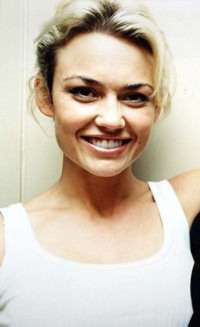 MOVIE NEWS QUENTIN TARANTINO
MOVIE NEWS QUENTIN TARANTINO US TOP 10 (CINEMA)
US TOP 10 (CINEMA)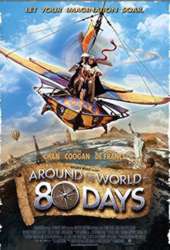 ** IN THE PIPELINE **
** IN THE PIPELINE **